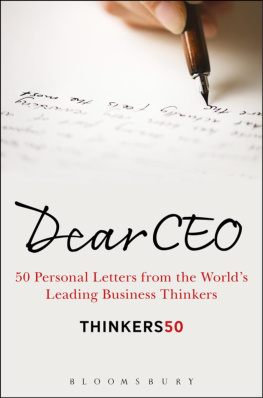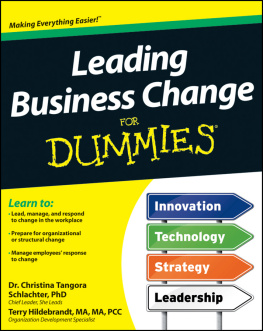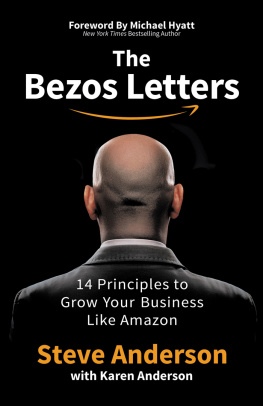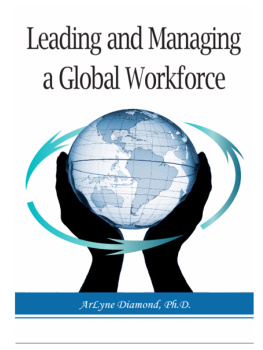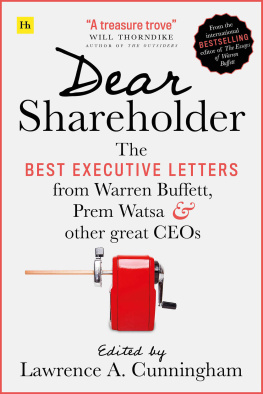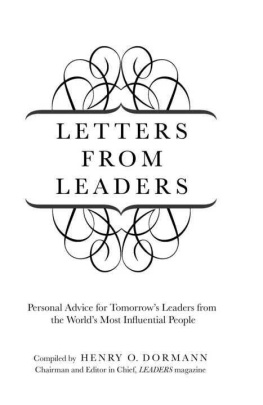DEAR CEO
DEAR CEO
50 Personal Letters from the
Worlds Leading Business
Thinkers
COMPILED BY
STUART CRAINER AND
DES DEARLOVE
Bloomsbury Business
An imprint of Bloomsbury Publishing Plc

Bringing together letters from many interesting and thoughtful people including university professors, writers, consultants and CEOs themselves this really is a fascinating book! As a CEO myself, I am also one of the recipients.
The differences in the writers backgrounds and positions mean that these letters are about very different things. For example, some raise the issue of care for female employees, while some urge the CEO to act on their commitments to consumers. Written by fifty top business thinkers from around the world, these letters touch on methodologies, theories, processes and results, as well as the journey to realizing personal dreams and goals. This book deserves to be called an encyclopaedia of ideas for CEOs.
A great Chinese scholar called Liang Shuming said that there are three cultures in the world: the Chinese culture focuses on relations between people; the Indian culture focuses on ones relation with oneself; and the Western culture is mainly about the relation between people and nature. From this perspective, these fifty letters can be read by any CEO, regardless of their cultural backgrounds. The ideas are universal and applicable to all CEOs, wherever they may be working.
My company, the Haier Group, is undergoing its own transformation, based on Internet management. Although there are many Internet technology companies in the world, few scholars and businesses have studied and implemented effective Internet management strategies. This is strikingly similar to the Industrial Revolution, which was triggered by inventions such as the steam engine but only blossomed following the introduction of assembly lines.
As part of the changes initiated by Haier, we are committed to giving everyone the chance to be their own CEO. This book should therefore enjoy a large and growing audience.

Zhang Ruimin
Chairman and CEO, Haier Group
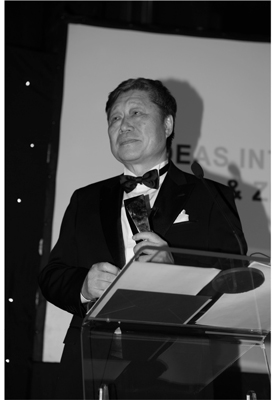
Midway through the Wimbledon Mens Singles Final the television cameras scanned the crowd in the royal box. There were past winners, sporting greats, politicians and celebrities of various degrees of permanence. Among them was a single figure who appeared less intent on the irresistible rise of Novak Djokovic and more on the smartphone in his hand. He was Sir Martin Sorrell, the CEO of WPP.
For the modern CEO there is no rest from the steady stream of emails, the demands on their time. There is no hiding place.
At the very top, there appears a relish for such demands. Sir Martin famously promises to reply to anyone in WPP who emails him within twenty-four hours. He calculates that for anyone to bother the CEO it has to be something important.
Talking with one CEO, he summed up his modus operandi: The reality is that every time I am on the move, I make a call; every time I have a break I call someone. I go through a mental list of who I havent spoken to for a while or someone who I know has a new piece of work on, or family news theyve just had a new baby or something.
And yet, here was a man clearly happy in his work. The life of a CEO is not for everyone, he told us. It is a gruelling, stressful and often lonely, existence. It is physically, mentally and emotionally demanding. And, of course, there is no guarantee of success or even survival in the post. So why do it? Because, on a good day, it is also the best job in the world.
Most jobs come with a job description, a lengthy list of the exact parameters of responsibility. But when you reach corporate leadership roles, the job descriptions come to an end. You are left alone to make it up as you go along. The only sure thing is that you will be expected to deliver results.
The loneliness can be oppressive and partly explains the rise of the executive coaching industry. Not knowing what it is you should do or when or with who offers more freedom than most executives have usually experienced in the corporate cocoon. In their previous incarnations executives have often been purveyors of certainty; as CEOs they find that uncertainty rules. It can bewilder even the best prepared.
Little coherent research has been done as to how executives do and should manage their daily working lives. Filling out a six-page academic survey is rarely high on a CEOs daily to-do list. Indeed, the reality largely went unexplored until Henry Mintzbergs The Nature of Managerial Work, published in 1973.
Instead of spending time contemplating the long term, Mintzberg found that managers were slaves to the moment, moving from task to task with every move dogged by another diversion, another call. The median time spent on any one issue was a mere nine minutes. Remember this was nearly a quarter of a century before email.
So, this is the world of the CEO: constant interruptions, seemingly impossible demands on your time, unable to confide in people, unsure who to trust, uncertain as to what you can and cant say.
What to do?
We asked a global selection of leading business thinkers what advice they would pass onto CEOs? What do CEOs really need to know and pay attention to?
Dear CEO is the result.
We believe it provides vital food for thought for anyone who is already a CEO and anyone who aspires to become a CEO. It is the leadership agenda for our turbulent times.

Stuart Crainer and Des Dearlove
Thinkers50 Founders
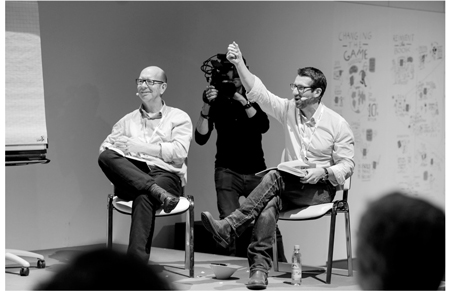
Dear CEO,
When you were growing up many people told you to have big ambitions to shoot for the moon. And congratulations you have made it. Not only have you become a member of the C-Suite, as the CEO you have risen to a level of responsibility that most people only ever dream of. But maybe you are starting to question what success means to you, and to realize that you no longer want to be defined solely by what you do for a living. That this success that you have achieved, that this person that you have become, is not really what you want at all? So what should you do next?
Now, of course, many top executives define themselves with and through their work, and all other things in life are subordinate. If you are one of those executives, then you can stop reading now. But if you aspire to something more, to a wider definition of success, then please read on.
Since the inception of the industrial age, one of the pinnacles of success has been achieving the level of top management in a large organization. There has been an unwritten manual, leading from being a successful child to a teenager to an adult. It has included getting an education, an education that has opened the door to a good job, promotion and career. Along the way, you may or may not have been successful in finding a life partner and establishing a family, or to contributing to community in a wider sense. Much has depended on your perceived notion of personal, societal and material success.
Next page
